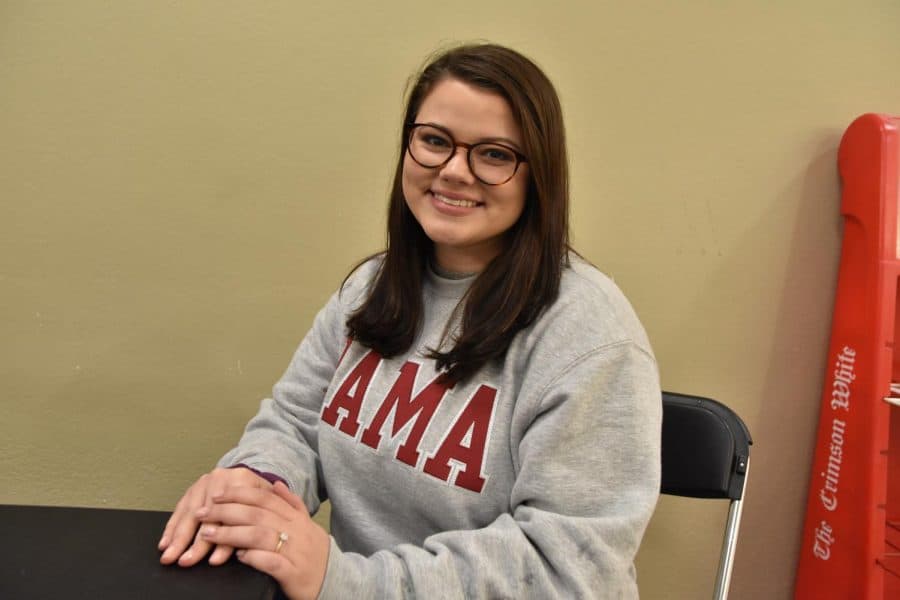Interns weigh value of experience with financial needs
January 24, 2019
For anyone looking to lose 20 pounds in just a few months, Abba Mellon has the perfect, foolproof diet. There are just a few simple rules: drink vending machine coffee, eat nothing but tacos and churros and spend most of your day working at “the happiest place on earth.”
Mellon, a junior majoring in creative media and gender and media studies, worked at Walt Disney World during her fall semester. She was a part of the Disney College Program (DCP), a paid internship program that allows college students to work at Disney Parks in order to gain work experience and get a foot in the door with The Walt Disney Company.
DCP was an opportunity that Mellon had dreamed of for years, but she found that it wasn’t all that glamorous. Rent for Mellon’s provided housing was deducted from her paychecks, and the work could be draining.
“The pay rate itself was good, but all things considered, I was not making enough money,” Mellon said. “I felt like I was just barely scraping by financially for most of the time that I was in Florida.”
In October, she sometimes worked more than 60 hours per week. The United States Internal Revenue Service defines a full-time employee as someone who works more than 30 hours per week.
Though Mellon said her work “could be brutal,” her time with DCP was beneficial and sometimes very lovely. During her time at Disney, Mellon worked in Be Our Guest Restaurant, a “Beauty and the Beast”-themed dining room located in the Magic Kingdom. Mellon worked as a multi-hyphenate food service worker, often pushing around a heavy cart and going without tips per Disney policy.
“I loved Be Our Guest, though,” Mellon said. “I got to make magic for so many families every day and I got to live out one of my favorite movies. I even had a backstory for how I fit into Beauty and the Beast. When the castle was cursed, I had been turned into a piano.”
Mellon isn’t the only UA student who has felt drained by the workload of an internship. Brianna Duncan, a sophomore majoring in news media, worked in Governor Kay Ivey’s press office during the summer of 2018.
Duncan’s internship was unpaid, so she also worked shifts at an Ulta Beauty store to make ends meet. “After working 40 hours in the Capital, I worked from 5:30 to 9:45 at Ulta,” Duncan said. “Then, I worked a six-hour to nine-hour shift Saturdays and Sundays, and my paycheck was still pretty low. I was so exhausted.”
The internship was beneficial, Duncan said, and she had opportunities to write and edit official posts and speeches for the governor’s office. But the biggest opportunity of all was the chance to have a meal with Ivey.
“I feel like the experience could be priceless,” Duncan said of potentially considering another unpaid internship. “Meeting and having lunch with Governor Ivey was priceless.”
Other students are less willing to take a job that pays only in experience. Leah Suzor, a senior studying mechanical engineering, interned with Lockheed Martin over the summer. The internship was paid, and it led to a full-time job offer that Suzor will benefit from in June. When Suzor was applying for internships, she didn’t bother with those that were unpaid.
“Unpaid internships are set up in such a way that the only way you can work them is that you can afford to work without pay,” Suzor said. “This limits the amount of people that can work the internship, which then limits the amount of people who can gain that experience in the field. Unpaid internships are a way to keep poorer people out of the career in general.”
Lockheed Martin was Suzor’s second internship experience, having worked previously with the Student Conservation Association in Great Smoky Mountains National Park. That internship, too, was paid, and Suzor was even awarded a scholarship at the end of her tenure.
Julia Becker, a senior majoring in civil engineering and Spanish, agreed with Suzor. Her recent internship with McCarthy Building Companies was paid, and the excuses that companies use to ask students to work for free are “ridiculous,” Becker said.
“The reasoning behind [unpaid internships], that students are earning so much through the experience that they don’t need to be paid, is just an excuse for companies to save money,” Becker said. “If an internship is going to be unpaid, it should at least include a housing stipend because they put students in a really uncomfortable position.”
Becker’s internship was not only paid, but also boosted with a housing stipend, which allowed her to move to Arkansas, where McCarthy is based.
More and more companies are beginning to pay interns in money rather than pure experience, according to the National Association of Colleges and Employers. The percentage of interns who were paid rose by 5 percent from 2011 to 2017.
As for Mellon, she, too, holds out for paid work. “Unpaid internships are a sin and should be abolished,” Mellon said.
Though Mellon often felt overworked and underpaid while working with the DCP, it hasn’t soured her against Disney as a whole.
“I had so much fun and learned so much while working for Disney and I still love the company,” Mellon said. “I just think it’s important to be upfront and honest about the nitty gritty of the experience, especially since the DCP has a widely known social media reputation for being a ‘semester of playing at Disney for free!’”








